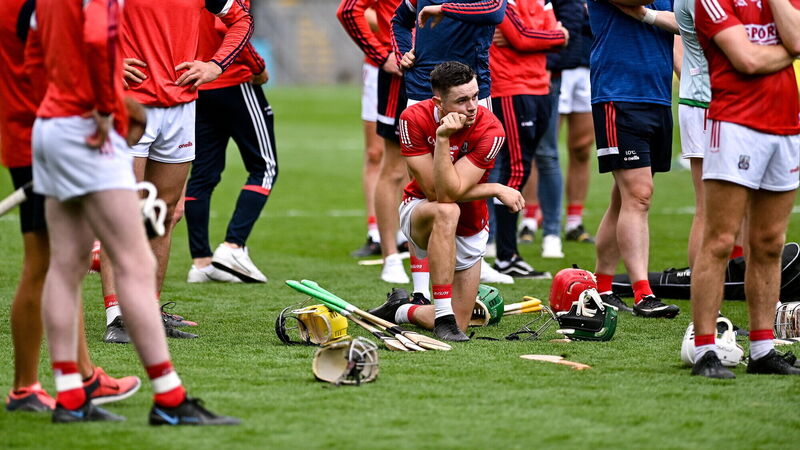Michael Moynihan: Keep up analysis of Corkness. We like to be talked about

Cork's Mark Coleman dejected after the All-Ireland SHC final loss to Limerick at Croke Park. Photo by Piaras Ó Mídheach/Sportsfile
Try from €1.50 / week
SUBSCRIBE
Cork's Mark Coleman dejected after the All-Ireland SHC final loss to Limerick at Croke Park. Photo by Piaras Ó Mídheach/Sportsfile
Many years ago, when we were trying to grow our hair like Morrissey — Stephen, not Tom — and sneak into the cinema to see Excalibur, The Hitch-Hiker’s Guide to the Galaxy series was a big hit with the intellectuals amongst us.
One of the books in that series features the inhabitants of Krikkit, a planet cut off by a mysterious cloud and inhabited by a people who can’t comprehend that other civilisations exist until the momentous day they emerge from that cloud and see the enormous variety of the surrounding galaxies. And say to themselves, ‘It’ll have to go.’
Already a subscriber? Sign in
You have reached your article limit.
Annual €130 €80
Best value
Monthly €12€6 / month
Introductory offers for new customers. Annual billed once for first year. Renews at €130. Monthly initial discount (first 3 months) billed monthly, then €12 a month. Ts&Cs apply.
Newsletter
Latest news from the world of sport, along with the best in opinion from our outstanding team of sports writers. and reporters
Newsletter
Latest news from the world of sport, along with the best in opinion from our outstanding team of sports writers. and reporters
Tuesday, February 10, 2026 - 9:00 PM
Wednesday, February 11, 2026 - 12:00 PM
Wednesday, February 11, 2026 - 1:00 PM
© Examiner Echo Group Limited